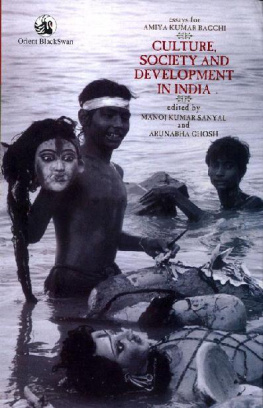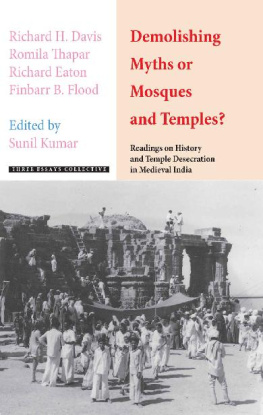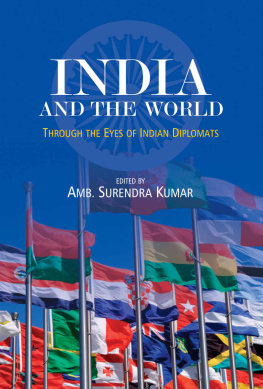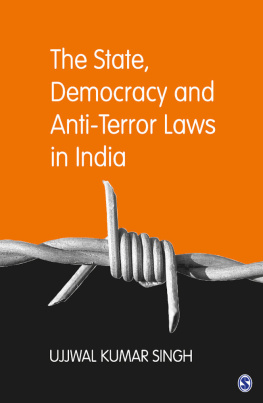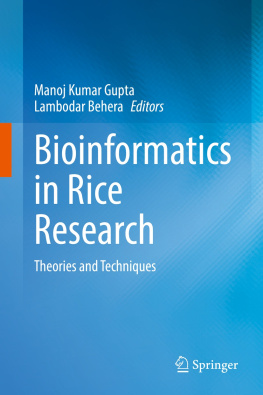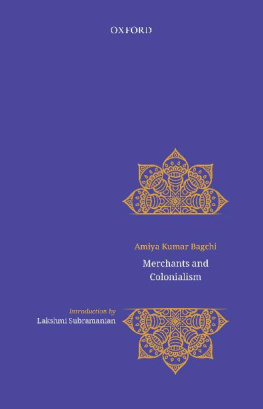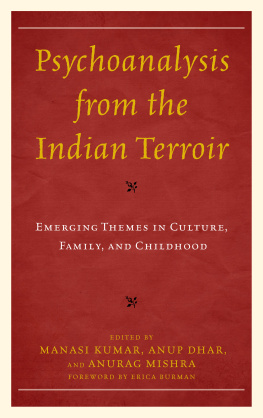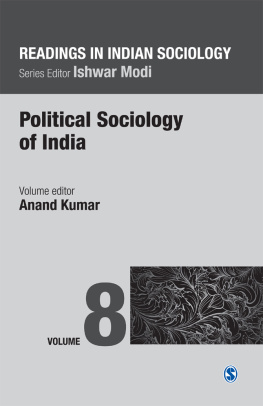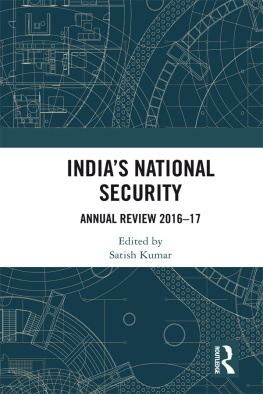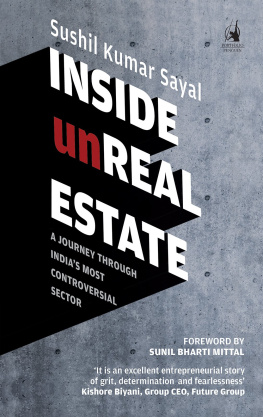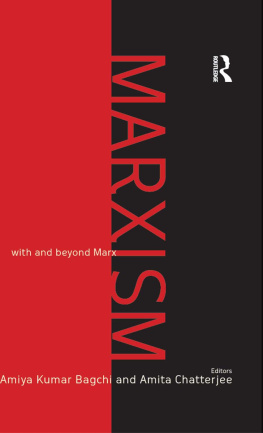Culture, Society and Development in India
Orient Blackswan Private Limited
Registered Office
3-6-752 Himayatnagar, Hyderabad 500 029 (A.P.), INDIA
e-mail:
Other Offices
Bengaluru, Bhopal, Chennai, Guwahati,
Hyderabad, Jaipur, Kolkata, Lucknow, Mumbai,
New Delhi, Noida, Patna, Vijayawada
Orient Blackswan Pvt. Ltd. 2009
First Published 2009
eISBN 978-93-5287-507-8
e-edition: First Published 2018
ePUB Conversion: .
All rights reserved. No part of this publication may be reproduced, distributed, or transmitted in any form or by any means, including photocopying, recording, or other electronic or mechanical methods, without the prior written permission of the publisher, except in the case of brief quotations embodied in critical reviews and certain other noncommercial uses permitted by copyright law. For permission requests write to the publisher.
A Tribute to Amiya Kumar Bagchi
Very few economists of Professor Amiya Kumar Bagchis standing venture upon writing on diverse subjects ranging from literature to philosophical discourses, from film appreciation to peoples movements and a lot of other themes having social and cultural content. Bagchis major literary writings were published in Bengali which remain inaccessible to his readers not knowing the language. We choose for discussion a few of those discourses mostly from his collection of essays entitled Sanskriti, Samaj, Arthaniti (Culture, Society and Economy) (Kolkata: Anushtup, 1995) where Bagchi displayed his inimitable way of speaking the truth without dogma. He never sat on the fence on ideological issues. He never walked out of the Cambridge leftist tradition in his numerous discourses on political economy and economic history. And he did not forget the people he met in his early life in the picturesque but poverty-stricken village of Jadupur in the district of Murshidabad. His schooling at Jadupur at the primary level in the early 1940s was joyful till he lost his mother at the age of eight. He quietly enjoyed nature and the solitude of his native village looking at its small ridges to pass for his dreamland of mountains, its vast expanses, trees and the sky. He might have recalled all this while writing his piece on Bibhutibhushan Bandopadhyay (Aranyak: Srenibibhakta jatpate gantha samaj pattaner shokgatha, Anushtup 1996, autumn issue, pp. 6670). His academic pursuits took him from Jadupur Free Board Upper Primary School to Krishnath College School (194551) at Berhampore, to Presidency College in Calcutta and finally Trinity College in Cambridge (195963). While his mothers habit of reading stirred his passion for books, it was her teaching that laid the foundation of his basic education. He also recalls his debt to some of his teachers for his early education: Satkari Ghosal, who taught him at the primary stage, and Sushil Bandopadhyay and Gouriprasanna Biswas at the high school level.
The introductory chapter of the collection (pp. ixxxix) defines the scope of the discourse and sets out an insightful analysis of the determinants of well-being. The essay starts with the wise observation that the concept of a golden age in the history of mankind is mythical. Mans struggle for independence like his struggle for equality and identity appears in the pages of history. He quotes Bankimchandra Chattopadhyay from his satirical writings based on an imagined conversation between Babu (gentleman) and Hanu (entellus monkey) that was written to ridicule Lord Mayo and Lord Ripons scheme of provincial decentralisation, local self-government and a host of other related pieces of legislation. Bankimchandra, as a civil servant, knew well that the scheme was nothing but a ploy for reducing the budgetary burden of the British Government.
In one of his major Bengali writings, Bagchi identified certain grey areas in contemporary literature on colonialism and imperialism (pp. 5260). He pointed out that historians provided a wrong perspective in holding the Mughals responsible for the loss of Indian independence. A vast majority of Indian landlords, traders and mahajans were Hindus, while a few were Gujarati Jains and Muslims. They thought that it would be easier for them to control the state power if the British ruled the country. In this connection, he refers to the fact that a composite class of Bengali Brahmans, Baidyas and Kayasthas formed a powerful pressure group long before the onset of British rule. It was mostly with their connivance that the British came to power. By the end of the nineteenth century colonial exploitation took the form of looting of industrial and agricultural produce and plundering resources.
His collection of essays was a valuable addition to the literature on colonialism and the nature of Indian capitalist enterprise. His essay on the rise of capitalism in East Asia (pp. 13060) was exclusively written for the same book. He examined the role of merchant capital (pp. 16163) at different stages of history, from a pre-colonial and pre-feudal state to feudalism, and from feudalism to capitalism. It is only through a social revolution that merchant capital could be turned into industrial capital. Bagchis stand on the collapse of the socialist system in East Europe and Russia is clear. He claims (pp. 198215) that the crisis of socialism is the crisis of civilisation, and refers to Mao-Zedongs declaration that the struggle against capitalism might last for a thousand years. He ends with the question: would humankind survive capitalism notwithstanding its brutality?
In a discourse on democracy, group interest and public interest (pp. 18697), Bagchi brings out the meaning of democracy, its exact connotation and the ways it functioned at different stages of history. He alludes to John Stuart Mill in pointing out some functional problems of democracy emanating from excessive bureaucratization of the administration. The basic objectives of democracy are often defeated due to a conflict between group interest and public interest, which is likely to persist as long as society remains class-ridden.
In a number of essays in the collection, Bagchi displayed his literary talent and admirable skill in creative writing. His critique of Saratchandra Chattopadhyay, Jyotirmoyee Devi and Rabindranath Tagore (pp. 28998) opens up new vistas of literary criticism. This was written in the context of a society where interaction between men and women was governed by age-old social relations and often by wealth or the lack of it. Suffering women in Saratchandras novels are generally denied their social identity but elevated to the rank of a goddess. The upright and outspoken Sailo, in the novel Nishkriti, shies away from any discussion on her husband apprehending that one might speak ill of her beloved. Women characters are given a binary identity: good or evil. The story ends with a clear message upholding the extended (or the joint) family system instead of unmasking its hollowness. Bagchi rightly observes that Jyotirmoyee Devi in her novel Baishakher Niruddesh Megh surpasses all other attempts to bring out gender discrimination and the fragility of the extended family system. The story narrates how the complexion of a woman is decisive in marriage and social relations; women with a dark complexion were often shabbily treated. Education could not remove this social stigma. In revisiting this aspect of Jyotirmoyee Devis novel, Bagchi served a great social cause. Based on the message from the novel, Bagchi brings home the point that women overcome their predicament and achieve freedom from their bondage only when society is composed of free individuals. Even in his narratives on a poet, a novelist or a film-maker he demonstrates his exceptional ability to set the person in their social and historical context while bringing out the aesthetics of their work, as in his discourse on Samar Sen and the dilemma of Indian intellectuals (pp. 27884); the essay was first published in 1988 (Anushtup, special issue), long after the ultra-left movement in West Bengal. Bagchi wrote percipiently about this poet-turned-journalist with a definite ideological commitment. Sen refused to pass through the cunning passages and contrived corridors of history, and in his poems in the early 1940s gave a call for a new world. Bagchi starts the discourse with a quote from T. S. Eliots Gerontion which shows the poetic vision he applies to understand a man of Samar Sens stature.



